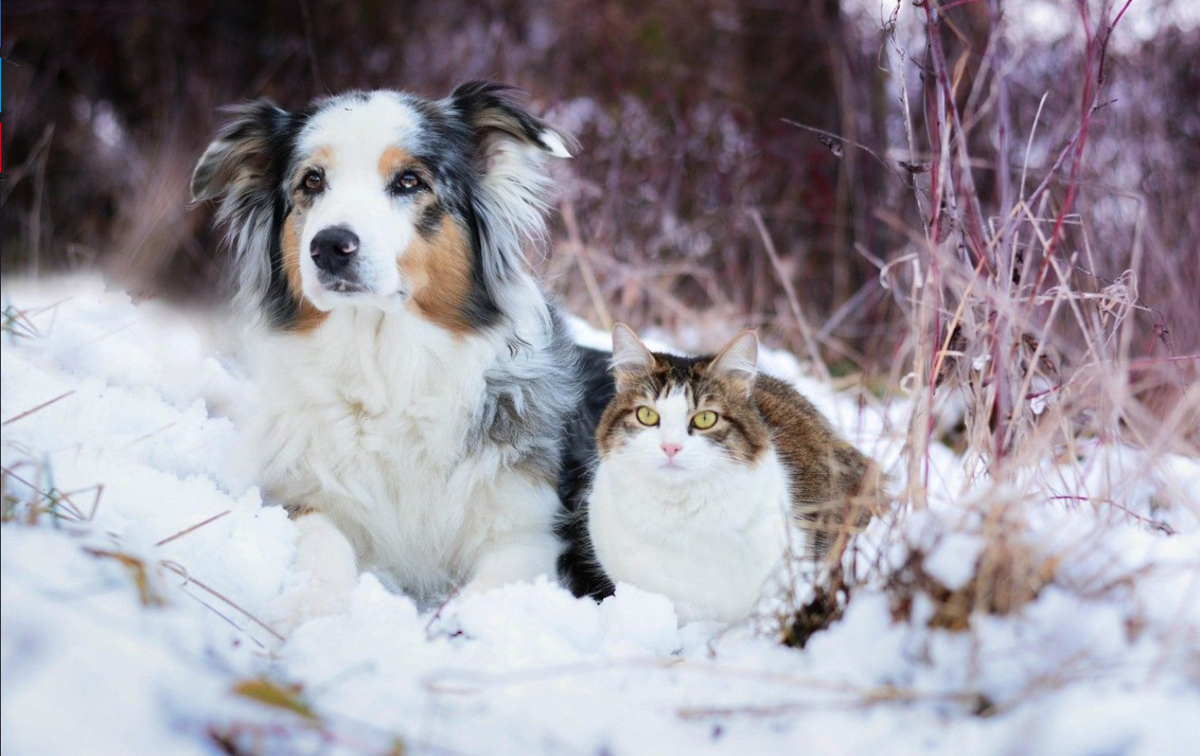
Winter Pet Care
Winter Pet Care
31 May 2024
Updated 29 July 2024
Caring for Your Pet During Winter
As we snuggle up in warm blankets and don our favourite slippers during the colder months, it's important to remember that our pets also feel the effects of winter. Just like we take extra steps to stay comfortable, we should do the same for our furry family members. Here are some essential tips to help care for your pet during winter.
Extra TLC for Senior Pets
Older pets often find it harder to move around in colder weather. The drop in temperature can aggravate stiff joints and arthritis. Adjust your exercise routine to ensure your senior pet can cope. Limit walks to no more than 20 minutes a day. Gentle exercise can promote good circulation and cardiac-health, but keep an eye on your pet’s weight, as extra pounds can worsen joint pain, especially in winter.
If your pet shows signs of arthritis or discomfort—such as stiffness, licking or chewing joints, difficulty with stairs, eating slowly, or noticeable behavioural changes—visit your vet. They might recommend supplements, medication, or other treatments to help manage your pet's joint pain.
Keep All Family Members Warm
Pets need adequate shelter to stay warm and dry during winter. Many pets struggle with harsh winter temperatures, particularly at night. Here’s how to create a cosy space for them:
- Ensure they have a warm, draft-free place to rest, elevated off cold, hard surfaces.
- Avoid leaving pets outside for extended periods; they can suffer from hypothermia.
- If your pet must be outside, provide a draught-free kennel with protection from wind and rain.
- Use warm bedding or blankets for added comfort.
- Consider pet coats for older pets or those with shorter fur.
- Keep cats indoors, or provide a cat-proof outdoor enclosure.
- Consider giving dogs an indoor sleeping spot, such as a bed in the laundry or a crate.
Exercise is Still Important
Despite the cold weather, pets need regular exercise to stay healthy. Lack of exercise can lead to health issues like diabetes and weight gain, and can cause behavioural problems due to boredom. Try exercising your pet during the warmer parts of the day. If outdoor walks are not possible, engage your pet with indoor activities like trick training or puzzle games. Winter is also a good time to teach obedience skills, rewarding with treats and cuddles afterward.
Winter Safety
Winter can bring unique hazards for curious pets. Some may seek warmth in dangerous places like car engines or near heaters and fireplaces, risking burns or other injuries. Heaters can also dry out their skin and paws. Restrict your pet's access to heaters and consider using pet heating pads as a safe alternative.
Winter Warming Tips
- Good Exercise: Keep your pet active to prevent weight gain and maintain their health.
- Regular Health Checks: Take your pet for a winter check-up, especially older ones who may struggle with colder temperatures.
- Fresh Water: Ensure your pet has plenty of fresh water, as indoor heating can dehydrate them quickly. Check their water bowl regularly to prevent it from freezing.
- Warm and Comfy Bedding: Provide warm bedding and consider moving pets who sleep outside to a warmer, more sheltered spot.
- Maintain Grooming Regime: Continue grooming your pet during winter. Long coats can lead to skin problems and matting. Keep their fur at a manageable length.
- Diet: Avoid overfeeding your pet during winter to prevent weight gain from inactivity.
By following these tips, you can ensure your pet stays healthy, comfortable, and safe throughout the winter months.
About Riverness
Riverness Animal Consulting stands as a premier online consultancy specialising in animal behaviour, training and management.
Book now to set you and your pet up for success!
